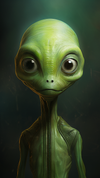What If Davidge Had Been a Drac?
A thoughtful reimagining of "Enemy Mine" from the Drac's perspective. This article explores how shifting the point of view transforms its themes of survival, brotherhood, and moral duty, revealing new depths in a science fiction classic.
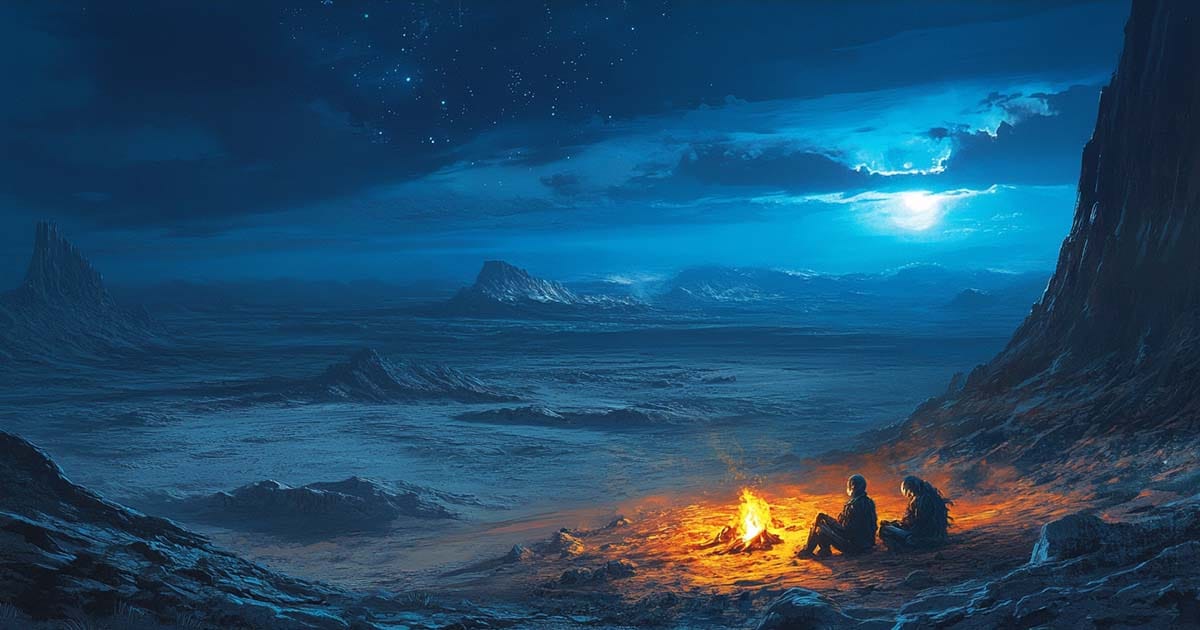
Shadows on the Far Side of the Moon
Stories reveal what they choose to show. They pick a witness, hand him the facts, and ask the reader to trust him. A war story begins with a rifle. A survival story starts with a crash.
"Enemy Mine" gives us both. Two enemies, stranded on a lifeless planet, are forced to depend on each other. The wind is sharp. The silence is total.
We know the story through one man. His thoughts shape what we understand. His fears define what we expect. The other voice—quiet, careful, strange—is harder to follow.
His customs are foreign. His words are filtered through translation. His beliefs are rarely explained. We learn only what the man beside him can grasp.
What if that voice led instead? What would shift if we saw through his eyes? How much of what we thought we knew would remain? Would we judge him as fairly as we judged his companion?
The answer may lie just past the crater rim, in a shadow not often explored. What seems alien from the outside might look familiar from within. And when the perspective changes, the meaning often does too.
Seeing Humanity Through Alien Eyes
A Drac in the lead role would alter everything. From the first scene, the reader would leave behind human instinct and enter a world ruled by structure, lineage, and sacred text. The human would not be the voice of reason or the lens of understanding. He would be the outsider.
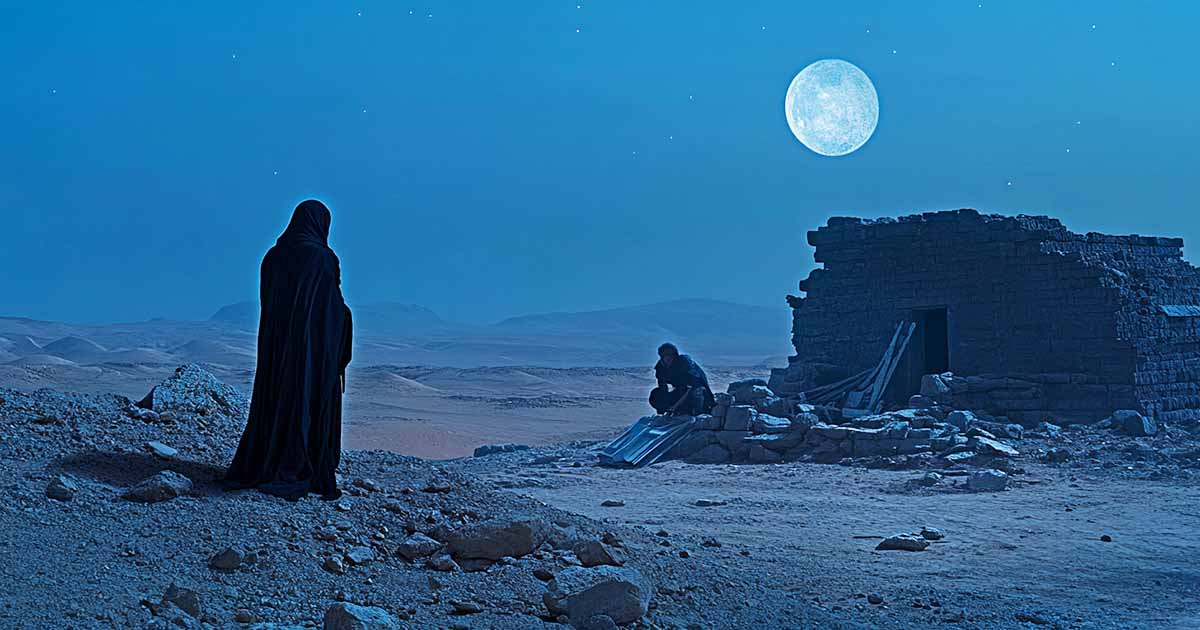
The original story gives us Davidge, a man shaped by duty, anger, and eventual humility. If the Drac took his place, the story would begin not with emotion but with order. A Drac does not swear, panic, or grieve as a man does. He prays, waits, and recites.
We would see the human's erratic behavior not as courage but as chaos. We would hear his voice not as plain speech but as noise. What once felt noble might now feel rash. The same events would unfold, but their meaning would shift.
The crash would still leave two survivors. The need for food, fire, and shelter would remain. But a Drac's thoughts would focus on what must be done and how to maintain spiritual alignment through trial. Where Davidge fought, this version might endure.
To see the story from the Drac's eyes is to question how much of our view is shaped by who is telling it. In that way, "Enemy Mine" becomes not just a tale of survival, but a test of understanding. The alien is not always who we think he is.
Altered Character Dynamics and Growth
The bond between Davidge and Jeriba is the heart of "Enemy Mine." It begins with hatred and ends with loyalty. That bond feels powerful because we watch a man change. But what if it had been the Drac who changed instead?
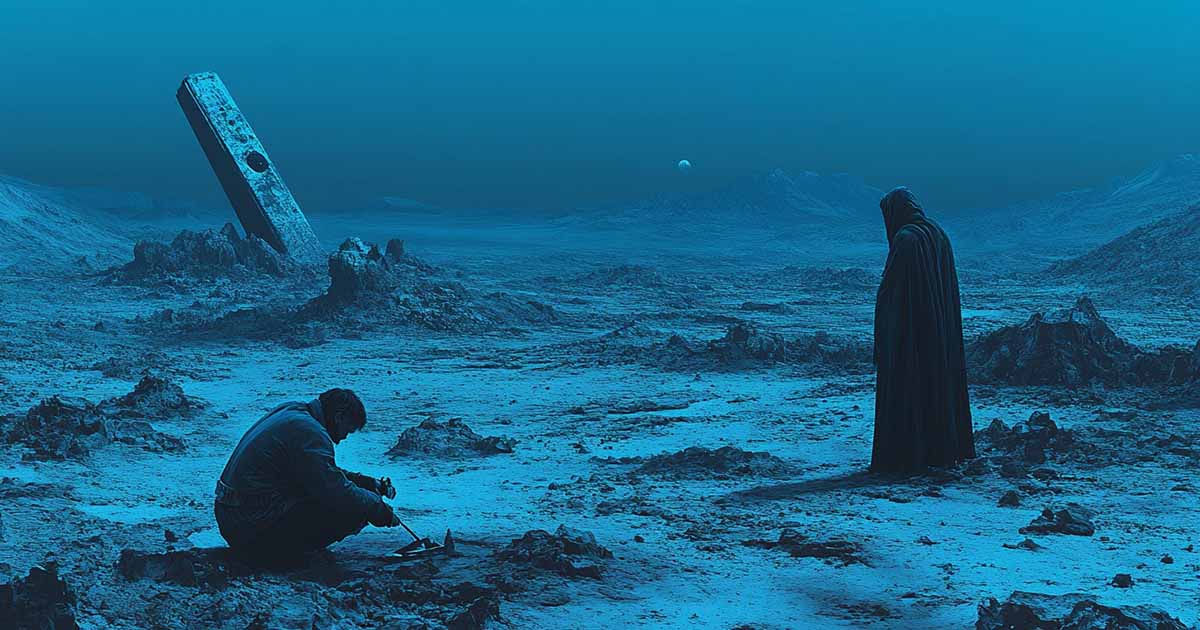
A Drac, raised in a culture that values tradition and hierarchy, might not question the war or his orders. He would see the human as dangerous and crude. He would resist emotional closeness, not out of pride, but from a belief in the order of things. And yet, something would have to give.
Survival forces attention. Hunger dulls belief. Pain breaks barriers. In time, the Drac might find value not in agreement, but in the act of listening.
The human, in this version, would become the unpredictable element. He would try to joke, to argue, to connect. The Drac would interpret these gestures not as signs of friendship, but as trials of patience.
Their growth would still converge. But where the original Davidge moves from contempt to care, the Drac would move from doctrine to compassion. Not a betrayal of his code, but a widening of it. The change would be quieter, yet no less real.
This reversal gives us a different path to the same destination. Trust would form. Respect would take root. And the peace they create would carry the weight of two transformations, not just one.
Themes Refracted Through the Drac Lens
The story of "Enemy Mine" turns on timeless themes. Brotherhood through hardship. Faith that endures suffering. And the unlikely grace of two enemies learning to care.
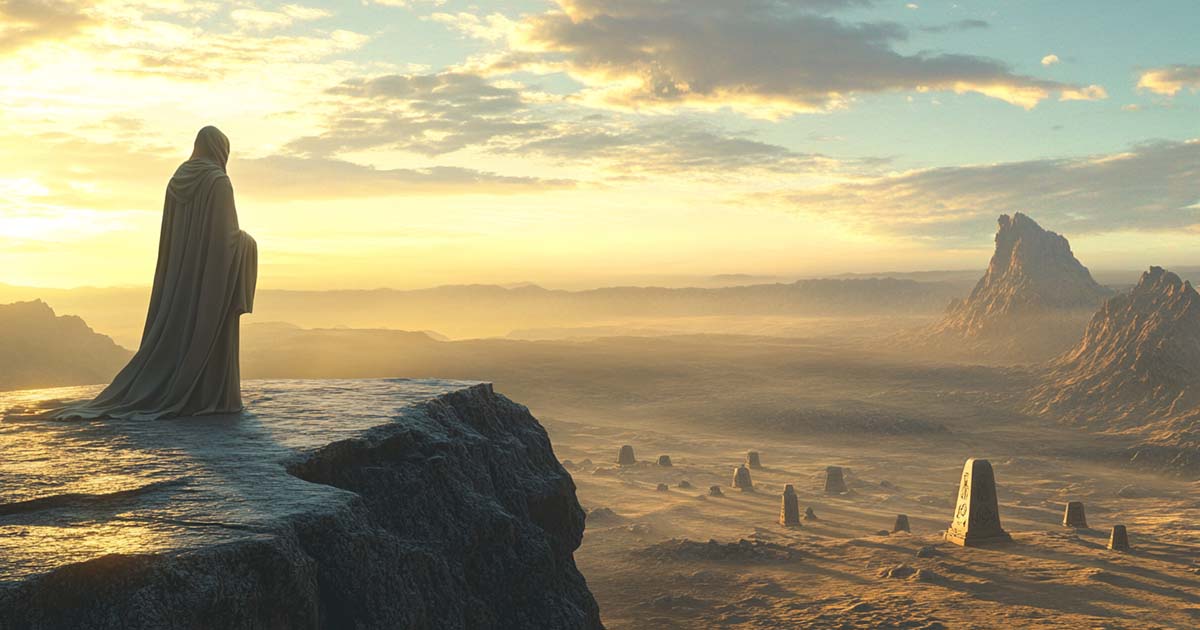
From the human view, these themes reflect guilt, humility, and growth. Davidge learns that the alien is not the monster. He finds a deeper truth beyond orders and uniforms. But told from the Drac's view, the message changes.
A Drac begins with faith, not fear. His lineage is sacred, his purpose inherited. To aid an enemy would not be easy, but it would not be shameful either. It would require discipline, not apology.
Helping the human, even raising his child, would reflect a broader understanding of honor. Survival would still matter. But so would maintaining spiritual clarity. The Drac would not lose himself in the process. He would grow by fulfilling a duty made richer through trial.
Peace, then, would not be personal. It would be moral. Brotherhood would emerge not from a breaking down, but from a strengthening of belief.
This shift casts the same story in a new light. It asks whether tolerance must always be learned or whether, sometimes, it is remembered. And in doing so, it gives the story a calm depth the original could only suggest.
The Same War, a Different Prayer
Reversing the point of view in "Enemy Mine" does more than alter the dialogue. It shifts the moral weight of the story without changing its structure. What once felt like a journey from prejudice to peace now becomes an act of quiet faithfulness under trial.

Told through Drac eyes, the tale asks different questions and offers different answers. It invites the reader to see dignity in stillness, duty in grace, and strength in restraint.
This lens does not weaken the original story. It strengthens it. By turning the perspective, we discover just how flexible the tale truly is.
"Enemy Mine" remains a rare kind of science fiction parable. It does not demand agreement. It simply reveals what happens when enemies stop speaking and begin listening. Whether told by a man or a Drac, that lesson is worth hearing.

